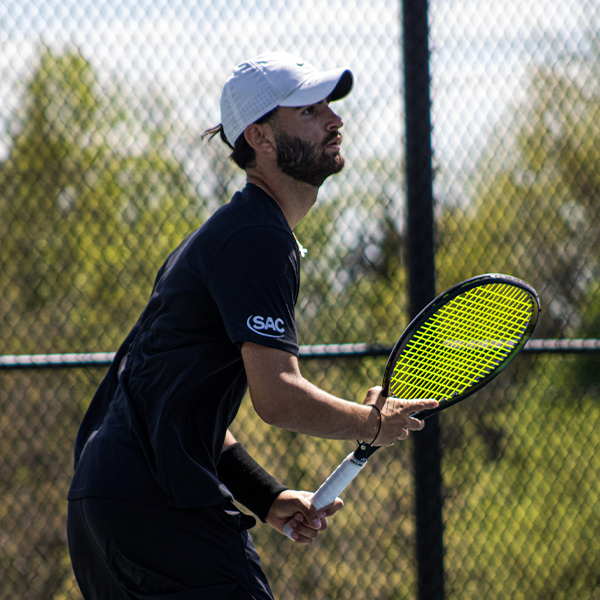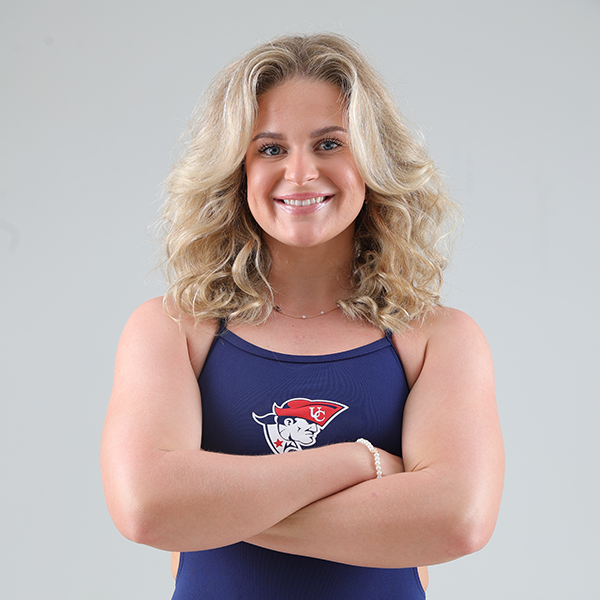
Celin Ullern
The Student-Athlete Experience 2025: Growth and Passion in Action
The Student-Athlete Experience 2025 is more than just a name—it’s a campaign built on the voices of international student-athletes who live, train, and compete in the U.S. every single day. No one understands what it’s like to be an international student-athlete in 2025 better than someone living it right now.
Train. Study. Compete. Grow.
Through real stories from around the world, we’re showing what it means to give everything to the sport you love, your education, and your future while building a new life thousands of miles from home.
Because it’s not just about matches or titles. It’s about the drive, the sacrifice, the growth, and the community you find along the way. Being a student-athlete in 2025 is demanding but powerful, unforgettable, and an experience you carry with you forever.
We asked Cellin Uller, a tennis player from Norway studying at University of the Cumberlands, to give a glimpse into her student-athlete experience.
The Student-Athlete Experience 2025: This is what living it really feels like.
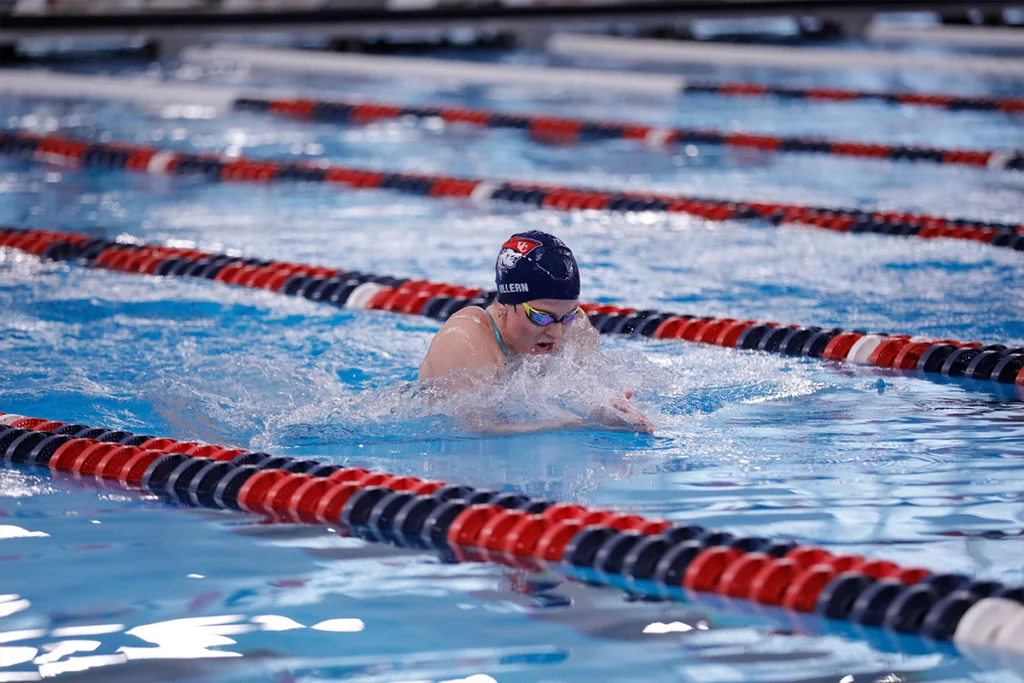
Being a Student-Athlete in 2025
Celin Uller reflects on how 2025 has been a standout year for her as a student-athlete. She shares how this season became a turning point in both her performance and experience:
“I had an excellent student-athlete experience in 2025. I figured out how to have a good routine to keep up with swimming and school, which led to good grades and a significant improvement in swimming. The team is like a big family, and we are good at cheering and being there for each other, which has led to a big lift this season.”
What It Means to Be a Student-Athlete
College sports represent one of the most demanding yet rewarding experiences available to students. The commitment goes far beyond what spectators see during games or meets; it’s a lifestyle that shapes every aspect of a student’s daily routine, from sleep schedules to social interactions. For those who choose this path, it becomes a defining part of their college experience and personal growth.
Celin shares what it truly means to participate in college sports, and why she loves it:
“Being a student-athlete means that I am dedicated and hard-working. I give my best and put all my effort into everything I do. I wake up at 4:30 AM for practice at 5 AM, which I know not many people would do. It is a demanding lifestyle that students choose to follow. They decided to both get a degree and perform well in their sport, which requires a lot. I’m proud to be a student-athlete and confident that I worked hard to get where I am now. It is something I will never regret; I love this lifestyle. I love being a part of a program and a team, and I will look back at this time with a smile. I have met people from around the world and made friends from different countries that I could not believe I was going to.”

A Moment She Will Never Forget
While victories and personal records often grab the headlines, the most profound growth in college sports frequently happens in the quiet moments after setbacks. Student-athletes quickly learn that their journey will have both ups and downs. These experiences, though difficult in the moment, become some of the most valuable lessons in resilience and character development.
Sometimes, though, the most important lesson isn’t about individual resilience–it’s about discovering you don’t have to face disappointment alone. One of the most powerful moments in Celin’s student-athlete journey came when she least expected it: after a disappointing swim at a major competition. What followed showed the true strength of team spirit and how support from others can completely change an athlete’s mindset:
“A moment I will never forget in my sports journey happened at a conference meet. I had just finished an exhausting 100-yard freestyle and swam much slower than my best time. I felt disappointed and frustrated. Then my coach walked over and told me I had tied with another swimmer for the A-final, and I had to swim-off in just 20 minutes.
I burst into tears; I was exhausted and did not want to swim again. I didn’t believe I had anything left to give, and the thought of another bad swim scared me.
But then my teammates showed up. They believed in me, said kind and encouraging words, and made me laugh. Their support lifted me up. The whole team stood by the pool and cheered loudly. I went into the swim-off feeling confident, and to my surprise, I dropped 0.6 seconds from my personal best. I won the swim-off and qualified for the A-final.
When I saw my time, I started laughing. I couldn’t believe it had gone that well after everything. But I know it happened because of the energy and belief I got from my team. My coach came over, hugged me, and told me they never doubted me.
That moment showed me that in the U.S., swimming isn’t just an individual sport. We train, compete, and grow together. Having a team like that is something I’ll always be grateful for.”
Benefits of Living On-Campus
As an international student, the campus experience takes on even more significance. Your dorm becomes your home base in a new country, and the people you meet in the hallways or dining hall often become your support system. There’s something comforting about having teammates and classmates just a few doors down.
For Celin, living on campus has been one of the best parts of her college experience. From having everything within walking distance to spending time with friends every day, campus life has helped her enjoy both the social and academic side of being a student-athlete:
“Campus life has contributed to a better college experience. It helps you participate in the social life on campus. If you live on campus, you will also be living with other people and designing your rooms together, which is a considerable part of the college experience and something everyone looks forward to. Living with my friends for that long means they are not just my friends anymore; they have become family. I get to eat breakfast, lunch, and dinner with a big group of friends, which never gets boring.
The campus has several coffee shops and food options, a library, a gym, and a social area for students. There are a lot of spots where we can meet up, either to hang out or do an activity such as playing volleyball or pool. Everything is about 5-10 minutes’ walk, which makes the days easier to get through as a student-athlete. I don’t have to waste time on transportation since my schedule is usually quite full. My university offers many get-together activities, such as free ice cream, foam parties, spring formals, and more.
Living on campus has allowed me to get the college experience I’ve always wanted. I’ve loved every minute of this part of my life, and I’m excited about the next two years I will be on this campus.”
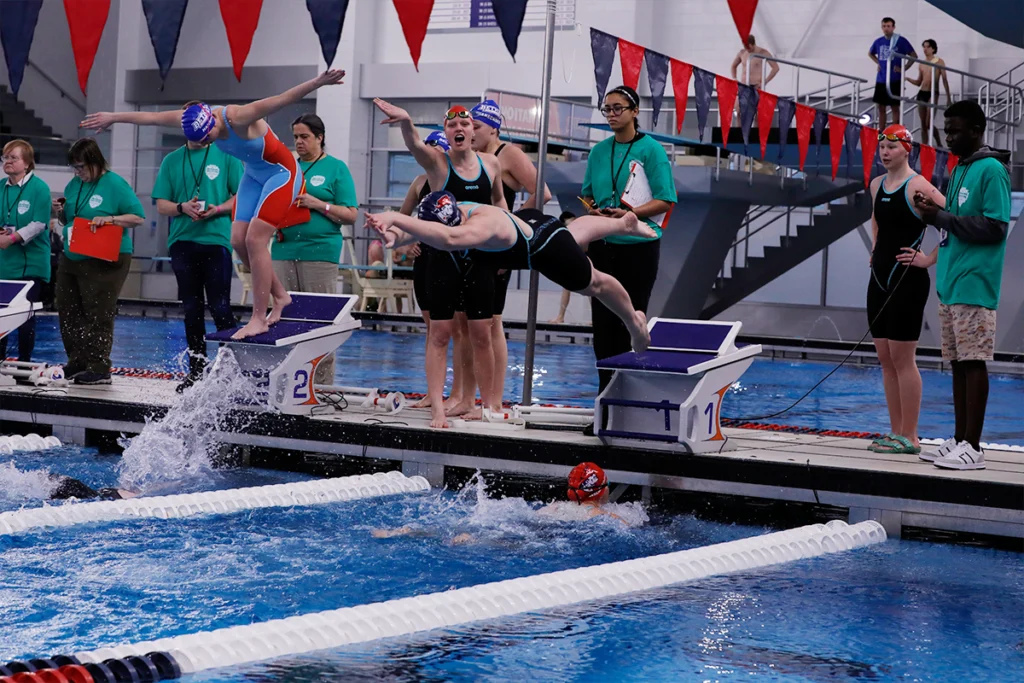
Finding Balance as a Student-Athlete
Being student athlete means getting really good at time-management and switching gears quickly. One minute you’re in full competition mode, and the next you’re trying to wrap your head around calculus or writing a history paper. It’s about learning to make the most of small pockets of time and accepting that your schedule might look different from your non-athlete friends. Most student athletes discover that the key isn’t perfect balance– it’s finding a rhythm that works for you.
Celin has found a routine that helps her balance swimming, studying, and enjoying her social life. Even though training takes a lot of energy, she makes time for schoolwork during the week so she can relax and be social on the weekends:
“Managing time for studying, training, and social life can be difficult. Practice takes about 4-5 hours daily, so I have a lot of time to study when I’m not in class. I mainly focus on training and learning on the weekdays to prioritize my social life on weekends. This schedule has worked very well for me and has also worked for many of my teammates.
Living on campus, I am never alone. I usually study at the library or coffee shop with my friends. Therefore, it feels like learning is also part of my social life. Also, my school has no classes on Fridays, Saturdays, or Sundays, so I have plenty of time to socialize. However, practice takes up a lot of energy, and most of my friends are exhausted athletes, so our social life usually goes into calm nights with a movie.”
Cultural Differences in the US
Moving from Norway to the U.S. came with a few surprises for Celin—especially when it came to everyday manners:
“One cultural habit that shocked me compared to my home country is how everyone holds the door open for you. It is very common how people open the door or hold the door open for me in the U.S. It is a kind gesture that they were taught when they were children. I would take this home with me. I find it kind and respectful.
Americans are also more open and friendly in this way—they give compliments and start conversations easily when they want to. It’s a more outgoing culture that makes you feel welcome, especially compared to my home country. That’s why moving to the U.S. was much easier than I expected.”
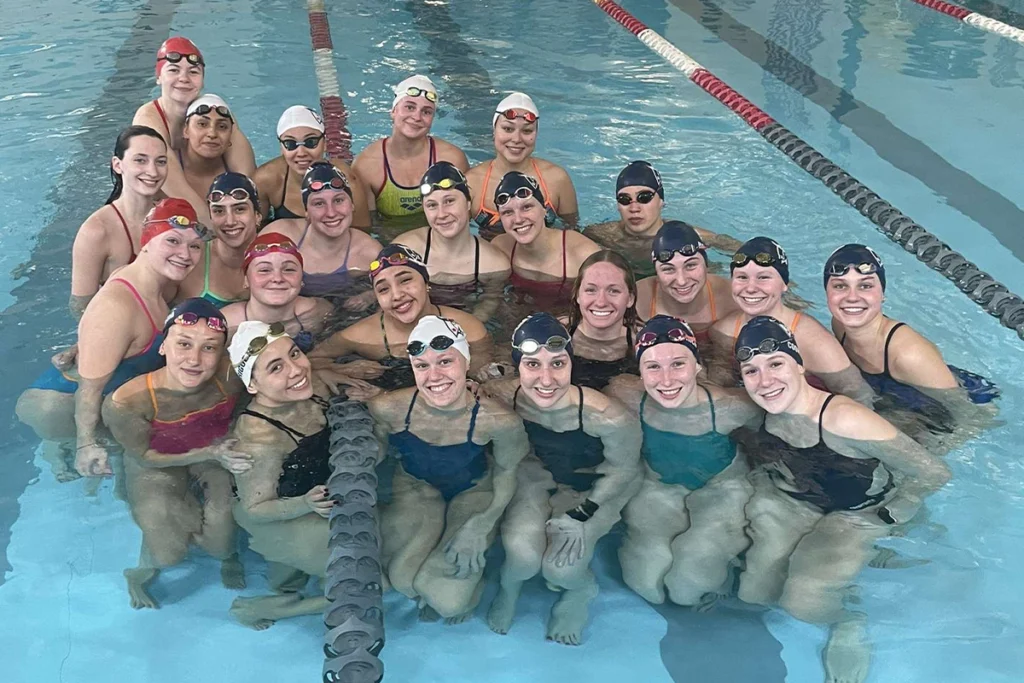
Building a Second Family Abroad
One of the most special parts of being a student-athlete is the strong friendships you create along the way. Spending so much time with the same teammates–training, studying, traveling, and living together–naturally brings people closer. These connections go far beyond friendship and turn into a bond that feels like family.
“I believe I’ve made friendships that will last a lifetime. In college, you spend every day with your teammates, and some have become my closest friends. We live together in a suite, eat every meal together, study, train, and travel as a team. For over a year, I’ve spent more time with them than I used to spend with my own family. Because of that, they’ve become like a second family to me.
When I go back home to Norway, I feel like something is missing because that part of my ‘family’ isn’t with me. I know graduation will be difficult because we’re all from different countries, and it won’t be easy to see each other often. But these are friendships I truly want to keep for the rest of my life, and I’ll always stay in touch with them.”
Advice for Future Student-Athletes
Celin reflects on how stepping outside her comfort zone changed her life, helping her grow into a more confident and independent person. Her message to future student-athletes is simple: don’t let fear hold you back.
“I would advise anyone thinking about becoming a student-athlete to go for it and not be afraid of leaving their family. Taking this big step will help you grow so much as a person. I’m not the same I was when I first went to the U.S. I’ve become more mature, independent, and confident. That growth came from stepping outside my comfort zone and leaving Norway. I was scared to speak in public, especially in English. I was nervous about starting a new life without my Norwegian friends and family around me. But studying in another country helped me discover a side of myself I didn’t know was there. My parents always told me to just try it. Not everyone gets this kind of opportunity, so if you do, it’s important to take it.”
Share this article:

